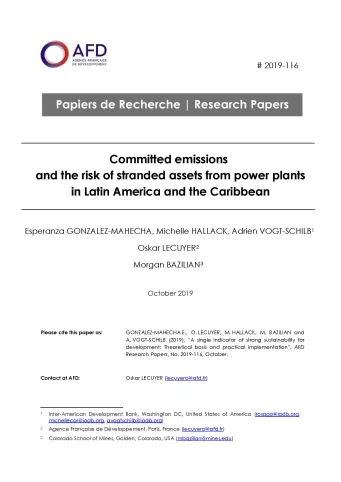Share the page
Committed emissions and the risk of stranded assets from power plants in Latin America and the Caribbean
Published on

Latin America and the Caribbean (LAC) has the least carbon-intensive electricity sector of any region in the world, as hydropower remains the largest source of electricity. But are existing plans consistent with the climate change goals laid out in the Paris Agreement? In this paper, we assess committed CO2 emissions from existing and planned power plants in LAC. Those are the carbon emissions that would result from the operation of fossil-fueled power plants during their typical lifetime. Committed emissions from existing power plants are close to 6.9 Gt of CO2. Building and operating all power plants that are announced, authorized, being procured, or under construction would result in 6.7 Gt of CO2 of additional commitments (for a total of 13.6 Gt of CO2). Committed emissions are above average IPCC assessments of cumulative emissions from power generation in LAC consistent with climate targets. The paper concludes that 10% to 16% of existing fossil-fueled power plants in the region would need to be “stranded” to meet average carbon budgets from IPCC. Our results suggest that international climate change commitments are material even in developing countries with low baseline emissions.
Useful Information
-
Authors
-
Esperanza GONZALEZ-MAHECHA, Michelle HALLACK, Morgan BAZILIAN, Adrien VOGT-SCHILB, Oskar LECUYER
-
Coordinators
-
Oskar LECUYER
-
Edition
-
116
-
Number of pages
-
38
-
ISSN
-
2492 - 2846
-
Collection
-
Research Papers
